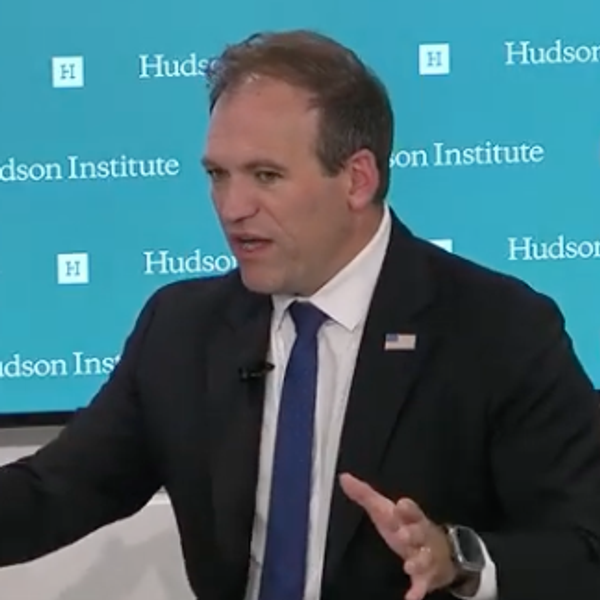Young Americans appear highly skeptical of Washington’s ability to improve the world through military force, according to a new poll from the Eurasia Group Foundation (EGF).
A majority of respondents aged 18 to 29 told pollsters that the United States should cut its military budget, end arms sales to Israel and Saudi Arabia, and emphasize diplomacy over other tools when engaging with the world.
Zuri Linetsky, a research fellow at EGF, argued that youth respondents have likely been formed by the failures of recent U.S. military policies.
“If you are 29 right now, you came of voting age towards the end of the Obama years,” Linetsky said. “You saw the Iraq surge. […] You’ve seen pushes in Afghanistan that haven’t worked. You’ve just seen the limits of American power.”
The wide-ranging poll, which was conducted via online survey in early September, received more than 2000 responses from a diverse sample of Americans. While respondents reflected U.S. demographics in most areas, the poll reflected a somewhat disproportionate number of responses from women and Democrats.
Unlike many other polls, the EGF survey also provided respondents with substantial factual background about the various issues included in the poll before they were asked to give their opinion.
Compared to other groups, younger respondents showed significantly greater concern about human rights abuses committed by the United States and its allies and expressed doubts about Washington’s ability to create change through military force. Notably, a majority of young survey respondents (55 percent) rejected the idea that America is an “exceptional nation.”
On Israel, young respondents were the only age group that said Washington should stop selling weapons to Tel Aviv, with most of them justifying this decision as a response to Israeli human rights violations stemming from its “enduring occupation of Palestine.”
Human rights concerns also appeared to drive youth concerns about America’s use of drone strikes, according to Linetsky. A majority of younger respondents (56.7 percent) held a negative view of the tactic, while older groups largely viewed drones as a valuable tool for fighting terrorism.
When it comes to China, 56.5 percent of younger survey takers said the U.S. should reduce its military footprint in Asia and shift the burden to regional allies. Support for increasing our troop presence in the region tracked directly to age, with more than 63.6 percent of respondents over 60 years old arguing in favor of such an increase.
Respondents were much less split when it came to arms sales to Saudi Arabia: nearly 70 percent said Washington should stop selling weapons to Riyadh, and that majority held across differences in age and party affiliation.
On Ukraine, a plurality of respondents (39.8 percent) approved of President Joe Biden’s response to the Russian invasion, while 24.9 percent disapproved and 35.3 percent remained neutral. Survey takers emphasized that Washington’s primary goal in Ukraine should be to avoid direct war with Russia and prevent the suffering of Ukrainians. “Weakening Russia to punish it for its aggression” was the least popular reason for supporting Ukraine.
Meanwhile, a bipartisan supermajority of respondents (78.8 percent) said Biden should continue to negotiate with Iran in order to block its access to a nuclear weapon, with 88 percent of self-described Democrats supporting negotiations and a surprising 71.8 percent of self-described Republicans in agreement.
Close to 80 percent of those surveyed agreed with the proposition that presidents should seek congressional approval before ordering military action abroad, an increase of nearly ten percentage points since EGF first asked the question in 2020.
The poll also found a large partisan gap in views about U.S. engagement with international organizations as well as negotiations to deal with global issues like climate change and migration. Nearly two-thirds of self-described Democrats (65.3 percent) said they favored greater engagement, while a mere 26.3 percent of self-described Republicans favored that option. But nearly 60 percent (58.5 percent) of all younger respondents said they preferred greater engagement.














